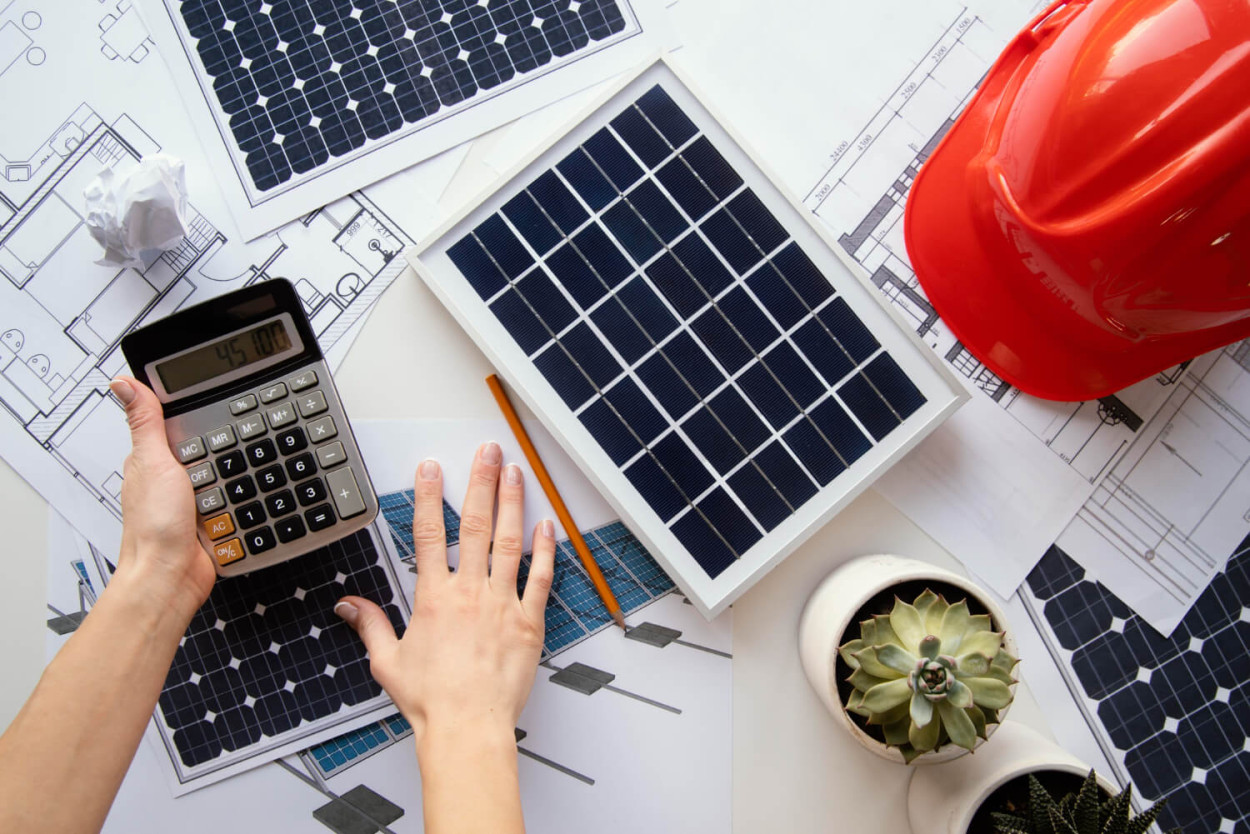0203 193 8888
0203 193 8888

Solar power is a clean and renewable source of power, and installing solar panels for your home is an effective way to reduce carbon emissions and lower electricity costs. When looking into solar panel installations, one important decision is whether to mount them on the roof or the ground. This article will discuss the factors to consider when choosing between rooftop and ground-mounted solar panels, helping you make a decision based on your property.
Rooftop solar panels make efficient use of available space, especially in built-up areas where garden space or land may be limited. Installing panels on the roof of your property allows you to maximise solar energy generation without sacrificing any ground area.
Rooftop installations are visually less obtrusive, as solar panels can be mounted to blend seamlessly with the overall architecture of your home. They are a great option for those worried about maintaining the aesthetic appeal of their property.
Rooftop solar panels make the wiring and infrastructure requirements more simple, as the distance between the panels and the electrical system is reduced. This can limit the installation costs and potential energy losses associated with long-wiring systems.
Installing solar panels on your roof may require extra considerations regarding the structural integrity of your roof. The roof must be able to support the weight of the panels, particularly during extreme weather conditions. It is also important to account for regular maintenance and potential roof repairs in the future.
Solar panels installed on the ground offer flexibility in choosing the optimal placement and orientation for the most solar exposure. Unlike roof-mounted, they can be adjusted to face the sun directly, increasing energy production throughout the day. This is very beneficial in areas with shade issues or poor roof orientations.
Ground-mounted installations are more easily accessible to maintain and clean. Without the need to climb onto the roof, regular maintenance tasks, such as panel cleaning or inspection, can be performed more efficiently.
Ground-mounted systems also offer greater flexibility for system expansion. If your energy requirements increase or if you plan to add more solar panels in the future, ground-mounted installations can easily accommodate these changes.
Ground-mounted solar panels require available land or open space for installation. If you have a large garden or unused land, ground solar panels can be an excellent option. However, it's essential to consider the compromise associated with dedicating land for solar installations, such as reduced outdoor space for other purposes or landscaping.
When deciding between installing rooftop or ground-mounted solar panels, there are numerous factors to consider. Rooftop installations offer benefits such as space efficiency, aesthetic integration, simplified wiring, and optimal use of existing structures. Alternatively, ground-mounted installations provide flexibility in placement and orientation, easier maintenance, scalability, and the potential for optimised energy production. The best choice depends on your circumstances, available space, aesthetic preferences, shading concerns, and future expansion plans. We advise consulting with a professional solar installer who can help assess your needs and determine the most suitable option for your business or home.
Back to Blog